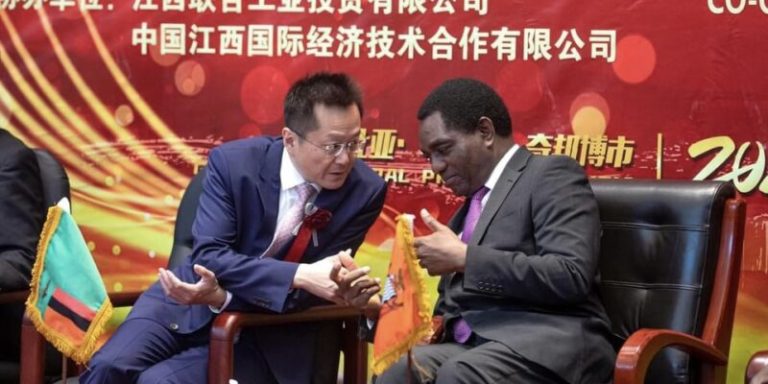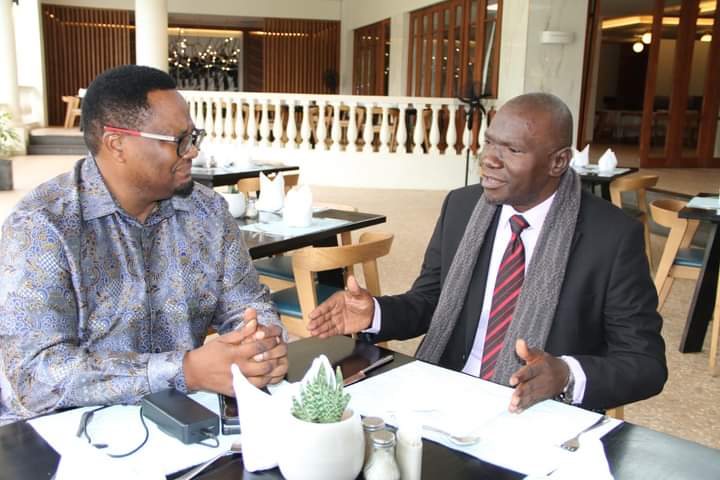
Zambia needs to undergo a paradigm shift in its political discourse, prioritizing a political reform agenda that emphasizes collaborative solutions over partisan politics to address critical issues such as the food and energy crisis.
By Hon. Ponde C. Mecha
Lusaka, Nov. 15 – Zambia is facing pressing challenges with food shortages and an energy crisis, problems that require immediate and collective action. Yet, in many cases, these serious issues are politicized, particularly as the 2026 elections approach. What Zambia needs is a paradigm shift in political discourse – a reset in the way political leaders engage with the public. Politicians should not merely use public platforms like funerals, churches, or traditional gatherings to score political points. Instead, these opportunities should be leveraged to drive collaboration across party lines to address the country’s urgent problems.
Also Read: Turning Political Boundaries into Bridges: Dr. Chilufya’s Golden Opportunity for Mansa Central Following Dr. Chilufya’s statement, Hon. Mecha paints a vision of a Zambia where leaders unite, ideas are shared, and every corner of the country benefits from these alliances.
◾Strategies for a Collaborative Political Approach:
▪️ – Bipartisan Agriculture and Energy Programs: Political leaders must come together to support farmers and energy initiatives without making the solutions conditional on political loyalty. They should collectively advocate for the timely distribution of agricultural inputs and work to implement renewable energy projects that can help reduce Zambia’s reliance on non-renewable sources. By focusing on immediate action rather than waiting for post-election promises, leaders can make tangible progress.
▪️ – Resetting Political Platforms for Problem Solving: Zambian politicians frequently speak to the public at funerals, churches, and traditional ceremonies. Instead of politicizing these moments, they should focus on the real issues affecting people’s lives – food security and energy shortages. Politicians should use these opportunities to inform citizens about ongoing efforts, mobilize resources, and inspire action. This change in approach will ensure that leaders remain relevant not just as future candidates, but as active participants in the nation’s development today.
▪️ – Forming Cross-Party Task Forces: Establishing task forces that transcend political affiliations to address the food and energy crises can be a powerful step toward solving Zambia’s challenges. These groups can collaborate with technical experts, government bodies, and private sector players to ensure that the country maximizes the potential of the rainy season for agriculture while exploring innovative energy solutions.
▪️ – Engaging Traditional Leaders for Grassroots Support: Politicians should work closely with traditional leaders to engage communities in resolving food and energy challenges. Chiefs and local leaders have influence and the ability to drive change at the grassroots level. Collaborating with them will ensure better resource distribution, community participation, and accountability in agricultural and energy projects.
▪️ – Moving Away from Politicizing Hardships: Politicians should avoid using the hardships of food insecurity and energy shortages as tools to manipulate voters ahead of 2026. Rather, they should be part of the solution now. Aspiring leaders who claim they can fix Zambia’s problems once in power should first demonstrate their capacity for collaboration and leadership by contributing to resolving these issues today. True leadership is shown in times of crisis, not just during campaigns.
▪️ – Promoting Unity and Collective Responsibility: Political leaders must emphasize that Zambia’s success lies in collective action. By fostering a narrative of unity, peace, and collaboration, politicians can shift the public focus from waiting for political saviors to actively engaging in solutions. Joint media appearances and bipartisan public meetings can help demonstrate solidarity and a shared commitment to Zambia’s well-being.
Also Read: Boosting Rural Resilience: How NHIMA, FISP, and Cash-for-Work Can Secure Zambia’s Food Future. By adapting the cash-for-work program to benefit rural farmers, and improving the efficiency of NHIMA and FISP through targeted reforms, Zambia can create a more resilient and sustainable food system.
By adopting this new approach, Zambian politicians can focus on immediate solutions rather than political gains. A collaborative effort today will create real impact, improving food security and energy access while fostering a more united, resilient nation. This paradigm shift in political discourse can transform Zambia’s future, placing the needs of the people above partisan interests.
About The Author: Hon. Ponde Chunga Mecha is the immediate past MP for Chifunabuli Constituency. He has worked and executed various development programmes in the agriculture sector under various funding sources including GRZ, World Bank, NORAD, FINNIDA, FAO, Melinda and Bill Gates Foundation, USAID and the EU.
About Our Advocacy: Woodpecker’s Digest provides in-depth analyses and commentary on issues of national importance, alongside articles on personal development and health. We believe journalism can be a force for socio-economic change.
©2024 Woodpecker’s Digest.
Putting news into perspective







